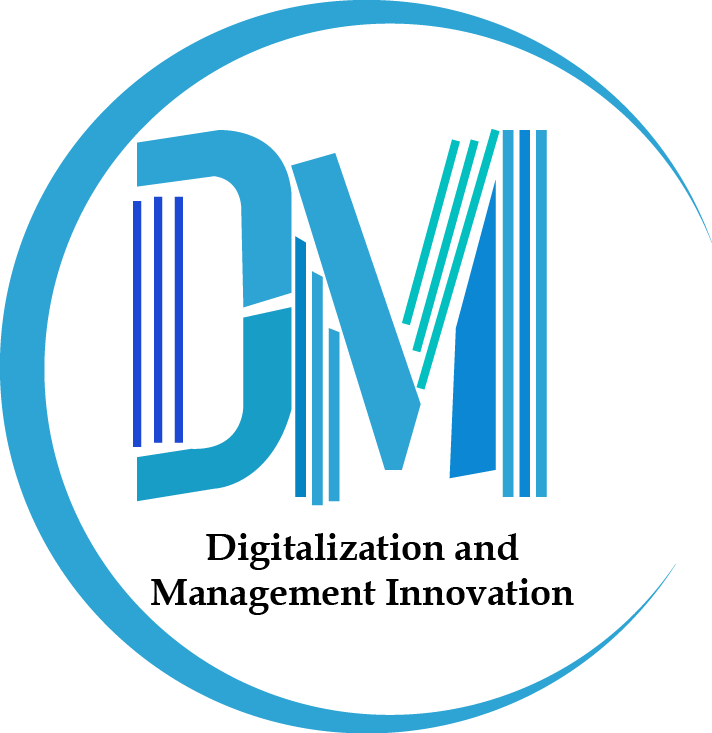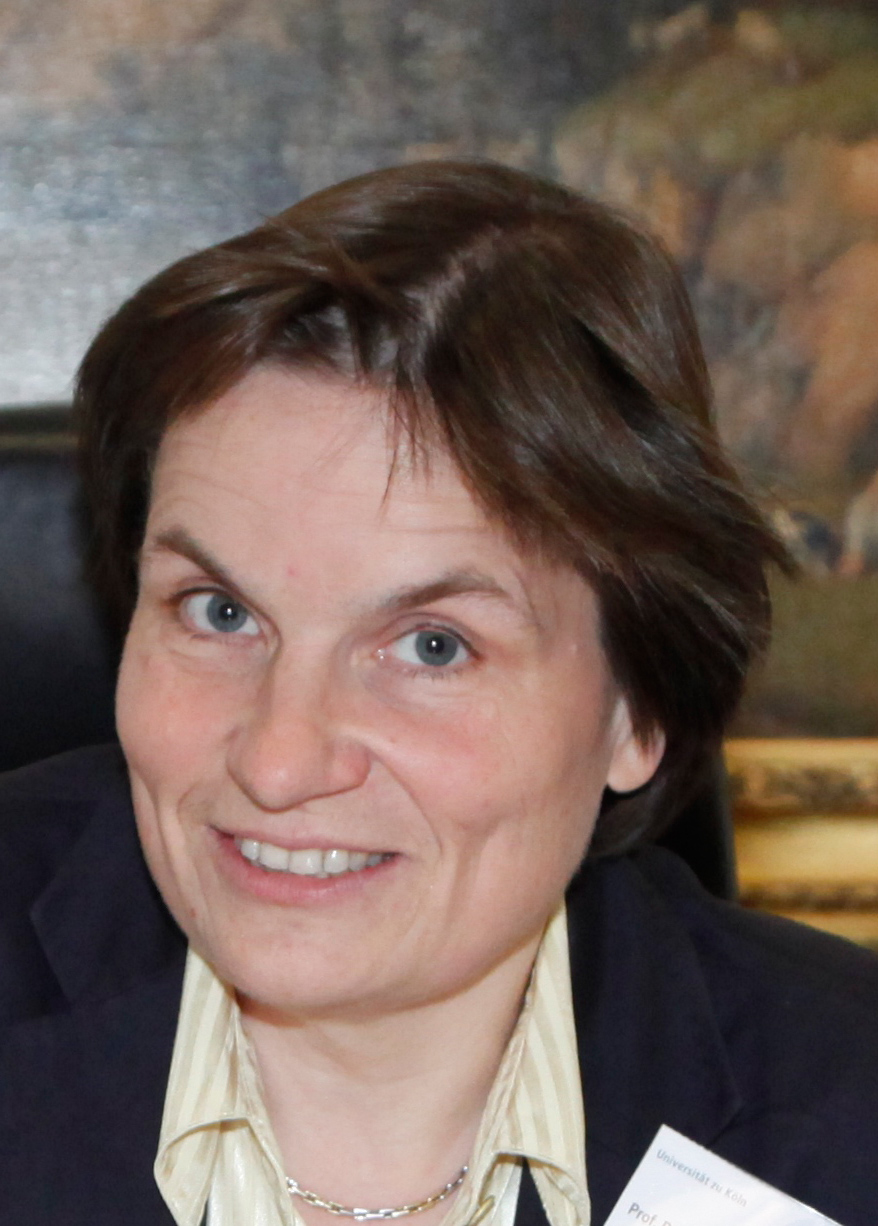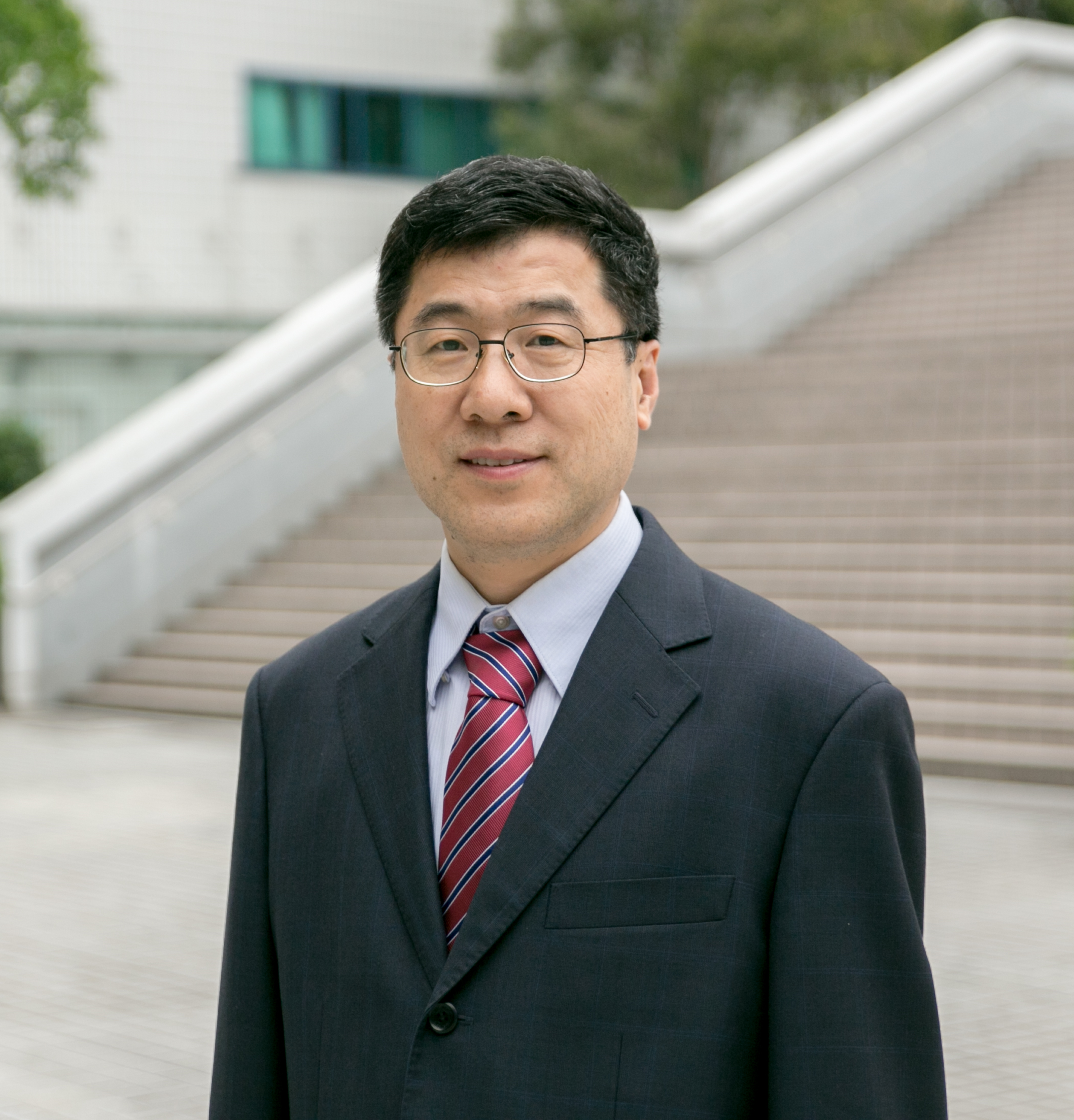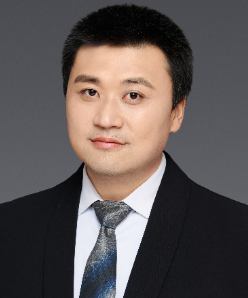Prof. Claudia Loebbecke
Chair of Media and Technology Management, University of Cologne, GermanySpeech Title: To be updated
Abstract: To be updated
Biography: Claudia Loebbecke holds the Chair of Media and Technology Management at the University of Cologne. In 2005-2006, she was elected President of the global Association for Information Systems (AIS), which named her AIS Fellow in 2012, and a 'Distinguished Member cum laude' in 2019. She is long-standing Member of the European Academy of Sciences and Arts, the European Academy of Sciences, and the Honor Society 'Beta Gamma Sigma'.
Since 2025, she is Member of the EU High Level Groups (HLGs) on Policy Innovation, specifically the HLG on Accelerating Technology Transition (also 2011-2013) and of the Johannes Kepler University (JKU) Business School Advisory Board in Linz, Austria. In 2023, she became Distinguished Professor at Woxsen University in Hyderabad, India, and member of the Global Diplomacy Lab (GDL) in Berlin, Germany. In 2015, she was appointed as member of the Scientific Advisory Board of the Scientific Institute for Infrastructure and Communication Services ('WIK') and 'WIK Consult' (Board Member 2018-2022). 2021-2024, she was member of the Administrative Board of the Regional Public Broadcaster WDR ('WDR-Verwaltungsrat') and 2016-202 deputy member of the 'WDR-Rundfunkrat'. 2019-2022, she served as External Scientific Advisor to the Artificial Intelligence (AI) project 'KI.NRW' organized by Fraunhofer IAIS, 2016-2021 as Member of the Scientific Advisory Board for Regulatory Issues of the Federal Network Agency for Electricity, Gas, Telecommunications, Post and Railway ('WAR der Bundesnetzagentur'), 2012-2020 Board Member of the Leibniz Information Centre for Economics; 2013-2016 'Board Member' and 'Division Head' of the 'European Academy of Sciences' (EURASC), and in 2015 Founding Scientific Director of the 'Grimme Research Institute at the University of Cologne'.
She serves as 'Honorary Board Member' of the Journal of Strategic Information Systems (JSIS), as 'Advisory Board Member' of Information Systems Research (ISR) and the Journal of Information Technology (JIT) as well as on several international editorial boards. Between 1997 and 2015, she was seven years Senior Editor of the Information Systems Journal (ISJ) and twelve years of the Journal of Strategic Information Systems (JSIS).
Her previous employments include INSEAD (France), McKinsey & Co. (Germany), Hong Kong University of Science and Technology (Hong Kong/PRC), Erasmus University (Rotterdam, NL), and Copenhagen Business School (DK). Later research stays brought her to the Sloan School/MIT (US), Bentley University (US), the University of New South Wales (Sydney, AUS), INSEAD (FR), London School of Economics (UK), LUISS University (Rome, IT), and University of Paris-Dauphine (FR).
She received a Master Degree (1990) and a Ph.D. (1995) in Business Administration, from the University of Cologne, Germany, and an M.B.A. from Indiana University, Bloomington, Indiana, USA (1991) - the latter supported by a Fulbright Scholarship (1986/87) and a DAAD Scholarship (1990/91). From the Massachusetts Institute of Technology (MIT), she received the Executive Certificate 'Management and Leadership' (2013) and 'Artificial Intelligence: Implications for Business Strategy' (2018). Also since 2018, she holds the title 'Certified Board Member' ('Zertifizierter Aufsichtsrat') awarded by the Steinbeis Business Academy in Berlin.
Her research focuses on business models, management and regulatory aspects concerning a wide variety of digital and content goods, as well as on the innovative use of new media, information and telecommunication technologies including artificial intelligence (AI).
She has published almost 300 internationally peer-reviewed journal articles and conference papers and has contributed to the development of more than twenty in-depth case studies in eight different countries.
Prof. Hongyi Sun
Department of Systems Engineering, City University of Hong Kong, Hong Kong, China; School of Business, Shantou University, ChinaSpeech Title: Readiness Assessment of Digital Supply Chain of Industry 4.0
Abstract: Under the tide of "industry 4.0", digital economy promotes global trade, and digital supply chain (DSC) has increasingly become the core competition of manufacturing enterprises. However,Industry 4.0 technologies are in a typical technology-push market now. There is less evidence that those companies implementing these technologies in their supply chain have improved their performance. In fact, some digital transformations failed, while many other companies would rather wait and see. One of the reasons was that those projects focused on digital technologies alone while ignoring organizational and strategic factors. This paper reports a review of digital supply chain from technological, organizational and strategic perspectives. It is proposed that digital supply chain will enhance supply chain performance with the moderation of organizational readiness and strategic alignment. The three sets of propositions lead to a systematic conceptual model that incorporates Strategic, Technological, Organizational factors and then Performance (STOP). The STOP model can be used for further empirical research and also practical assessment before implementing a DSC project.
Keywords: Digital supply chain, Industry 4.0, organizational readiness, strategic alignment, readiness assessment
Biography: Prof. Sun has been working for 27 years in the Department of Systems Engineering, City University of Hong Kong. He is an adjunct professor in Shantou University. He is the programme director of the Engineering Doctorate programme in Engineering Management, EngD(EM). His teaching and research areas include the management of technological innovation, supply chain management, manufacturing/operations strategy, quality management, and innovation education. He resides on the editorial board of TECHNOVATION, the International Journal of Learning and Changes and International Journal of Quality and Reliability Management (IJQRM). He has published about 100 papers in international journals, google citation=7666, h-index=47 and i10-index=95.
Prof. Sun was listed in the Stanford global top 2% full career in Business and Management. He has twice been the winner of the Teaching Excellence Award at the City University of Hong Kong, European Excellence award in innovation and entrepreneurship education, IEOM global engineering education award, etc. His cross-disciplinary PIPE model, 3333 model, BMMB model, VIP model etc. motivate students to actively acquire a broad range of new knowledge along the innovation and entrepreneurship process. His teaching methods and models, reported in academic conferences and journals, have become widely recognized. He has become a regular speaker on innovation education and management workshops and conferences.
Dr. Adela Lau
Deputy Director of HKU SAAS Data Science Lab, Division of Statistics and Actuarial Science, School of Computing and Data Science, The University of Hong Kong, Hong Kong, ChinaSpeech Title: Wisdom Management with AI, Data Science and Big Data Analytics
Abstract: To be updated
Biography: Dr. Adela Lau is the Deputy Director of HKU SAAS Data Science Lab, Division of Statistics and Actuarial Science, School of Computing and Data Science of the University of Hong Kong. Dr. Lau published over 60 journal and conference papers and funded over 50 research and industrial collaboration and consultancy projects in the area of machine learning, business intelligence, text analysis, network analysis, social media and big data analytics, AI and Mixed Reality in metaverse, intelligence applications, risk management, information system adoption, ontology/taxonomy building, business process re-engineering, portal design, knowledge management, e-learning, public/community health studies, healthcare systems and nursing clinical quality control & assessment. She gained several awards including NANDA Foundation Research Grant Award (USA), Faculty Merit Award in Services (HK), and Inaugural Teaching and Learning Showcase Award (HK). She was the former director of Center for Business Development at Madonna University in USA, and the co-director of the Center for Integrative Digital Health at Hong Kong Polytechnic University (PolyU) and leaded the IT team for healthcare product innovation. Dr. Lau was an active committee member of Knowledge Management Research Center at PolyU and Data Science Center at Hong Kong University of Science and Technology (HKUST), in which she initiated and developed industrial applied-research consultancy projects. She was also the UG coordinator of the Risk Management and Business Intelligence Program at HKUST, and was responsible to lead, execute, and coordinate the program works including curriculum design, enrichment programs, and administration across three schools of business, science, and engineering.
Prof. Hui Liu
Professor and Doctoral Supervisor of the School of Artificial Intelligence/Future Technology, Nanjing University of Information Science and Technology (NUIST), China; Chief Professor (Invited), College of Arts, Xi'an University of Architecture and Technology (XAUAT), China; Guest Professor, Hochschule Osnabrück (Germany) - HFU Joint Institute; Researcher, Universität Bremen, Germany; Doctoral Supervisor, NOVA Universidade de Lisboa, Portugal; Chief Scientist, Guodian Nanjing Automation Co., Ltd.Speech Title: To be updated
Abstract: To be updated
Biography: Hui Liu is a Jiangsu Provincially Distinguished Professor and Doctoral Supervisor at the School of Artificial Intelligence / Future Technology, Nanjing University of Information Science and Technology (NUIST). Recognized among the top 2% of scientists globally by Stanford University and ranked within the global top 0.05% by ScholarGPS—where he is ranked 10th worldwide in the field of human behavior—he serves as Chief Scientist at Guodian Nanjing Automation Co., Ltd.; Chair Professor (Invited ) at the College of Arts, Xi’an University of Architecture and Technology; Guest Professor at the Hochschule Osnabrück (Germany) – HFU Joint Institute; Researcher at Universität Bremen, Germany; and Doctoral Supervisor at NOVA Universidade de Lisboa, Portugal. He has been awarded the Erasmus+ Scholar in Europe, received a mobile teaching grant, and was selected as a Young European Research Universities Network (YERUN) scholar, with a mobile research award.
Dr. Liu earned his B.Sc. from Shanghai Jiao Tong University in 2008, followed by a Dipl.-Ing. in Electrical Engineering from Technische Universität Berlin in 2009, and an M.Sc. in Information and Communication Systems from Shanghai Jiao Tong University in 2011. Since 2016, he has conducted research at the Cognitive Systems Lab, Universität Bremen, focusing on biosignal processing, human activity recognition, virtual reality, music information retrieval, and interdisciplinary applications of artificial intelligence, culminating in the award of his Ph.D. in 2021. He is co-responsible for four multi-institutional German national and industry-funded projects: Arthrokinemat (intelligent knee bandage), IntEL4CoRo (interactive learning for cognitive robotics), NF-BWB (development of young talents), and SEED (synthetic artificial biosignals for human-robot interaction).
He developed the first intelligent knee bandage capable of real-time recognition of users’ activities, earning the Best Student Paper Award (student author) at BIODEVICES 2019. In 2021, he proposed Motion Units—a novel activity modeling framework characterized by interpretability, generalizability, and expandability—integrating principles from kinesiology and speech recognition to advance human activity analysis. A co-authored paper on EMG-based action unit recognition received the Best Paper Award at BIODEVICES 2025. Additionally, two of his papers were nominated as Best Paper Finalists: one on high-level feature design (second author) at BIOSIGNALS 2022, and another on music signal processing (first author) at SIGMAP 2022.
Dr. Liu collected and released the CSL-SHARE dataset (2021), a 19-channel, 22-activity, 20-subject human activity recognition resource. Under his supervision, the ECG acquisition artifact dataset sensORder was published (2024). He has received several industrial accolades, including the CAMPUSiDEEN Public Choice Award for Smart Sensing and Recognition Technology (2022) and the 5th Prize in the Hangzhou Innovation & Entrepreneurship Competition for Overseas Talents (2025). He has held leadership roles in over 20 major international conferences, serving as General Co-Chair, Executive Chair, Program Chair, Technical Program Chair, Area Chair, Session Chair, Publicity Chair, and Keynote Speaker at events such as the 33rd International Conference on Artificial Neural Networks (ICANN), the 17th and 19th International Conferences on Bio-inspired Systems and Signal Processing (BIOSIGNALS), and the 7th International Conference on Activity and Behavior Computing (ABC). He is an editorial board member of multiple international journals and serves as a reviewer for more than 50 prestigious journals, including Nature Communications. In recognition of his exceptional peer-review contributions, he received the Sensors 2023 Outstanding Reviewer Award and was designated a “Trusted Reviewer” by the Institute of Physics, UK, an honor conferred for demonstrating “extremely high-level peer-review capabilities”. In 2022, he served as Chairman of the Judging Committee at the European Innovation & Entrepreneurship Competition for Overseas Talents, organized by the Chengdu Municipal Government.
Prof. Hui Liu’s dynamic international collaboration continues to flourish, now embracing a vibrant array of interdisciplinary frontiers—from AI-driven energy efficiency and smart building to human factors in aviation security, UAV technologies, maternal and fetal health monitoring, female aging, innovative tools supporting amateur vocalists, and surgical assistance for plica vocalis disorders. With remarkable momentum, numerous groundbreaking projects are advancing in parallel, each fueled by a passion for innovation and real-world impact. Ever enthusiastic and forward-looking, he warmly welcomes new opportunities for transformative, cross-disciplinary collaborations across diverse domains.
More Speakers will be updated…




